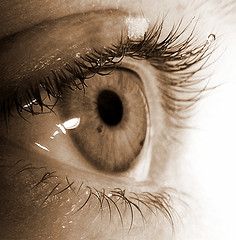Stress
Can Taking Multivitamins Make You More Resilient to Stress?
Could increasing your stress resilience be as easy as popping a pill?
Posted March 20, 2013

Psychology researchers sometimes use natural disasters as opportunities for research.
In 2011, Christchurch - a medium sized city in New Zealand, suffered a devastating earthquake that destroyed much of the central business district, rendered thousands of homes permanently uninhabitable, and killed over 100 people.
Local researcher Dr Julia Rucklidge used the opportunity of the tragedy to conduct a study that investigated the effects of taking either a B Vitamin pill or a more broad spectrum micronutrient supplement (vitamins + minerals + amino acids) on how people coped with the stress of the earthquake and subsequent disruption to their lives.

Participants in the study were allocated to one of four groups - a control group, or 1 of 3 treatment groups.
Participants in the three treatment groups took either Berocca (an over-the-counter Vitamin B complex formula) or a high or low dose of a more comprehensive micronutrient formula (8 pills or 4 pills, containing vitamins as well as minerals and amino acids).
All three treatment groups experienced significant improvements in psychological distress symptoms over the course of the 4 week study. On most measures these improvements were significantly larger than for the control group.
There were some differences depending on which supplements participants took. Those who took the comprehensive micronutrient formula reported bigger reductions in intrusive thoughts compared to those who took the more limited B vitamin formula. Also, participants who took the high dose of the comprehensive formula improved the most in terms of mood, anxiety, and energy.
Why would taking micronutrient supplements have these effects?

Why would taking micronutrient supplements have these effects?
When people are experiencing a stress response, the body has high demands for micronutrient resources.
There is specific evidence for the role of micronutrients in the production and/or regulation of serotonin, dopamine, GABA, adrenal function, homocysteine, and cortisol.
The synthesis, uptake and breakdown of neurotransmitters all require enzymes and these enzymes are dependent on co-enzymes (of which micronutrients are an important category).
Of course, the quality of people's diets can also suffer when they're under stress.
Can we draw conclusions from this study?
One issue with the earthquake study is that people were aware of which treatment group they had been assigned to. However, in total there have been 9 studies using micronutrients to treat stress/anxiety, of which 8 showed a benefit. These studies are reviewed in this paper. As Dr Rucklidge points out, “Drug trials only require 2 positive trials to get a drug approved” so these studies are worth paying attention to.
Sources:
- Rucklidge, J. J., Andridge, R., Gorman, B., Blampied, N., Gordon, H., & Boggis, A. (2012). Shaken but unstirred? Effects of micronutrients on stress and trauma after an earthquake: RCT evidence comparing formulas and doses.Human Psychopharmacology: Clinical and Experimental.
- Rucklidge, J. J., & Kaplan, B. J. (2013). Broad-spectrum micronutrient formulas for the treatment of psychiatric symptoms: a systematic review. Expert review of neurotherapeutics, 13(1), 49-73.
Subscribe to Dr Alice Boyes' articles

Subscribe to Dr Alice Boyes' articles
You can get an email alert whenever Dr Alice Boyes writes a new blog article - Subscribe.
You can read my prior articles for Psychology Today here.
Alice's Twitter @DrAliceBoyes
Follow Psychology Today Blogs on Pinterest.
Photos credits: Pink Sherbet Photography


